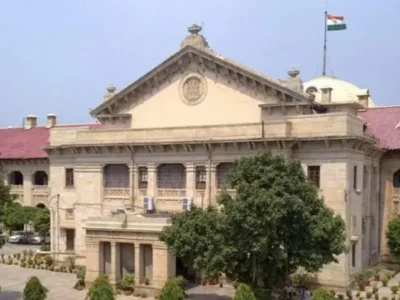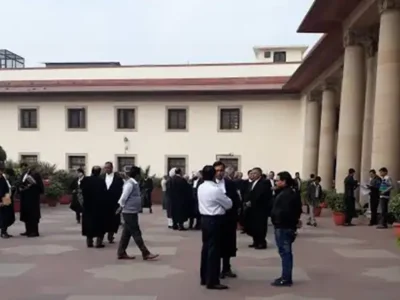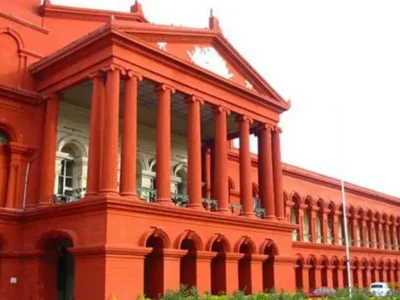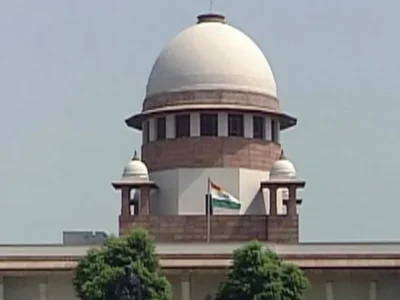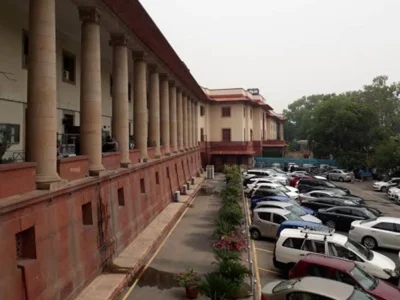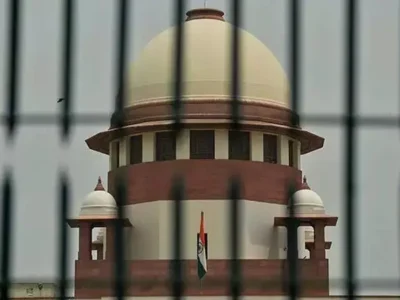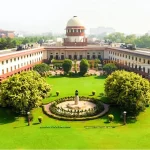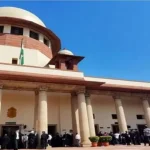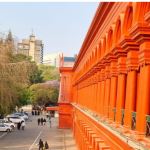The Parliamentary Standing Committee on Virtual Courts in India
The Parliamentary Standing Committee on Personnel, Public Grievances, Law and Justice headed by Rajya Sabha MP Bhupender Yadav released an interim report on the ‘Functioning of virtual courts/court proceedings through video conferencing after the COVID-19 pandemic’.
Virtual Courts for Traffic Challans Could Benefit Bengaluru in More Than One Way
A move by the High Court of Karnataka to set up virtual courts for traffic challans might not just reduce the burden on courts but also lessen Bengaluru’s traffic woes.
The ‘Loss’ of Justice
People often ask the question ‘Who am I?’ during the course of their lives as a point of reflection, hoping to dig deep and come up with incredible insights. When I dwell upon the same, I find that my professional identity becomes the defining feature of my persona.
Opinion: Refine Land Acquisition Process to Unclog Courts
The debate over the recent Karnataka Land Reforms (Amendment) Ordinance has brought into focus the contestations over land in rural India.
The Ideas That Led to Justice Frustrated
‘I often think about how litigation or the threat of litigation affects people. It takes over one’s whole life. The fear of the lawyers and the courts, the delay, the tension when you have to appear…. It is time-consuming, expensive and nerve-racking.’
BIC Talks: Justice Frustrated
Harish Narasappa and Sarayu Natarajan explore the wide-ranging implications of judicial delays on Indian society, delve into why delayed justice is such a pernicious problem, and talk about how it can be addressed.
Citizens Becoming Law Breakers Due to Court Delays: Retired Sc Judge
New Delhi: Delay by courts in deciding cases is forcing the public to resort to extra-legal measures to solve their disputes and law-abiding citizens are becoming lawbreakers, retired Supreme Court (SC) judge justice RV Raveendran said last week.
Hon’ble Justice R.V. Raveendran (Retd., Supreme Court of India) on the Impact of Judicial Delays
I take great pleasure on releasing Justice Frustrated: The Systemic Impact of Delays in Indian Courts, the third in the series of Rule of Law Project, edited by Shruthi Vidyasagar, Shruthi Naik, and Harish Narasappa.
A 21st Century Justice Platform for India
Leah Verghese and Surya Prakash from Daksh India talk to host Pavan Srinath about how a 21st-century justice platform can transform access to justice for Indians.
How Should Courts Function After the Lockdown?
The COVID-19 pandemic and the resulting lockdown will change the way many institutions are structured and will alter how we go about our daily activities. The judiciary is no exception.

